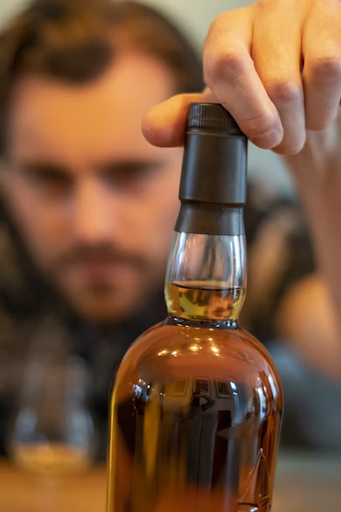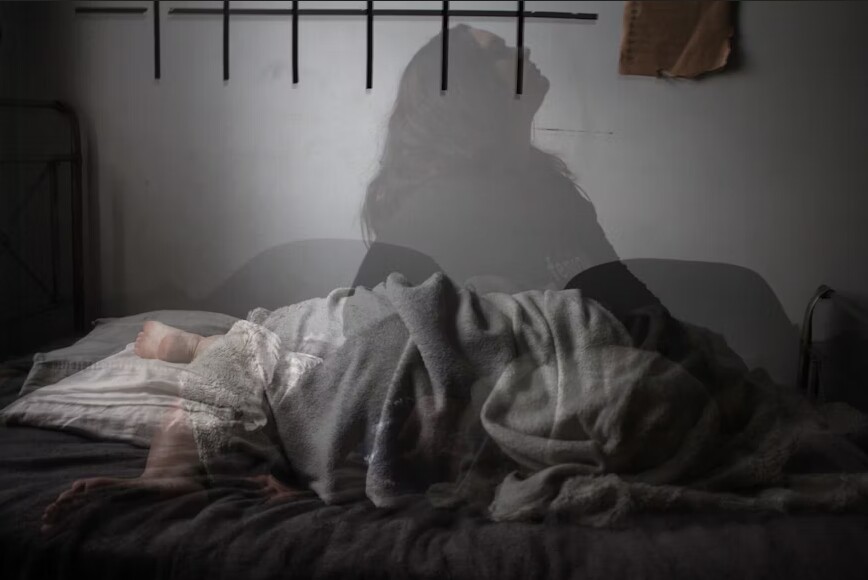It requires bravery and determination to stop drinking especially after it has gotten to the point where it is causing issues in your life. When it comes to sobriety, there are both psychological and physical challenges to conquer. It is a useful thing to ask the question How long does insomnia last after quitting alcohol?
Many people with alcohol use disorders also have sleep problems. They may fall asleep easily, but excessive alcohol use disrupts their sleep during the latter part of the night.
If you drink to excess, even occasionally, you have probably experienced sleep problems. “Three or more drinks will cause the average person to fall asleep sooner than usual,” says Shawn R. Currie of the University of Calgary. “However, falling asleep faster is the only real benefit of alcohol for sleep.” If you quit drinking and remain sober, you can have significant sleep problems long after you stop drinking.
General Withdrawal Symptoms
When your body has formed a physical dependency on alcohol, known as tolerance, and you stop drinking, you will have withdrawal symptoms.
Insomnia and anxiety are common symptoms, which can vary from mild to severe.
Tremors, shakiness, nausea, vomiting, headache, sweating, heart palpitations, and other withdrawal symptoms may occur.
Anxiety, depression, and extreme cravings are typical psychological withdrawal symptoms. More serious symptoms, such as confusion and convulsions, can occur in cases of prolonged, long-term alcohol use. The most serious type of alcohol withdrawal is delirium tremens.
Sleep Issues Associated with Quitting Alcohol
According to the Substance Abuse and Mental Health Services Administration (SAMHSA), between 25 and 72 percent of people in care for an alcohol use disorder (AUD) have sleep issues. Insomnia, disturbed sleep cycles, sleep apnea, and other sleep-disordered breathing are examples of sleep problems. According to SAMHSA statistics, such sleep deprivation is common. These problems can last for any period of time ranging from weeks to months or even years after the drinking stops.
Although it may seem like an insignificant factor, sleep can be one of the biggest determinants of success for a recovering alcoholic. Unsurprisingly, studies of AUD recovery find that sleep deprivation can pose a serious threat to recovery. David Hodgins, professor of psychology at the University of Calgary, was quoted by ScienceDaily as stating, “Sleep has a reputation among the recovering community of being one of the last things that fall back into place for an individual. It’s also recognized as a potential precipitant of relapse.”
Typical Recovery Sleep Problems
The more prevalent, disruptive effects include more frequent awakenings, worse sleep quality, reduction of deep sleep, and earlier-than-usual waking times, leading people to feel they did not get enough sleep.
Studies have found that:
-
- Sleep problems can last for many months after quitting drinking.
-
- Recovering alcoholics typically have more problems with sleep onset than with sleep maintenance.
-
- Many recovering alcoholics had sleep problems that predate their alcohol dependence.
Research also shows that sleep disruption can last long after alcohol withdrawal symptoms cease. They may continue to occur in the two to six months of abstinence following withdrawal.
Currie notes that recovery and abstinence are more challenging if you aren’t able to get enough good-quality sleep.
Non-Restorative Sleep
People in alcohol recovery take a long time to fall asleep, have problems sleeping through the night, and feel that their sleep is not restorative.
Lab studies show reductions in deep sleep and abnormalities in REM sleep in persons with more than a year of sobriety. REM sleep is characterized by increased brain activity, relaxation of the body, rapid eye movements, and increased dreaming.
“Sleep has a reputation among the recovering community of being one of the last things that fall back into place for an individual,” says David Hodgins, professor of psychology at the University of Calgary. “It’s also recognized as a potential precipitant of relapse.
Within the 12-step community, there’s a little saying that describes the risk factors for relapse; it’s called HALT. People who are Hungry, Angry, Lonely, or Tired are at an increased risk of relapse. Certainly, one way a person can be tired is through sleep disruptions.”
Insomnia
Researchers found that alcoholics with both short- and long-term abstinence had similarly disturbed sleep after they quit drinking. In general, problems with sleep onset were worse than with sleep maintenance.4
Types of Insomnia
-
- Onset insomnia: Trouble falling asleep
-
- Maintenance insomnia: Inability to sleep through the night (wake up and can’t fall back to sleep)
-
- Acute insomnia: Brief period of trouble sleeping, often caused by a stressful life event or experience
-
- Chronic insomnia: Problems falling or staying sleeping at least three nights per week for three months or longer
-
- Comorbid insomnia: Occurs with another condition, like depression or anxiety, that also interferes with sleep
Many people experiencing insomnia in recovery also had insomnia before they became dependent on alcohol. Currie notes that chronic insomnia affects 10% to 15% of the general adult population, but half of his study participants had insomnia before they became alcohol dependent. “Although we cannot infer any causal connection between insomnia and alcoholism from this data, it is hard to ignore such a high rate of pre-existing sleep problems in the sample,” he says.4
Treatment for Insomnia
The first treatment for insomnia in recovery is sobriety, and many patients will see improvement. For the specific treatment of insomnia, behavioral therapies are the preferred treatment (rather than medications), as they have been shown to be effective and they won’t interfere with sobriety.5
Cognitive Behavioral Therapy for Insomnia (CBT-I)
The goal of cognitive behavioral therapy for insomnia (CBT-I) is to change sleep habits as well as any misconceptions about sleep and insomnia that may perpetuate sleep difficulties. CBT-I often entails regular, weekly meetings, during which your therapist will give you sleep assessments, work with you to alter problematic sleep behaviors, and ask you to complete a sleep diary at home.
Sleep Restriction
This type of behavioral therapy works to improve your sleep efficiency, or the time you spend asleep divided by the time you spend in bed. The idea behind sleep restriction is that by limiting the amount of time you allow yourself to sleep and stay in bed, you’ll increase your desire to sleep (called sleep drive) and sleep less fitfully and more efficiently.
Medication
There are many medications used to treat insomnia, including benzodiazepine and nonbenzodiazepine medications. If you’re in recovery, your healthcare provider will need to weigh the risks and benefits of prescribing these medications for insomnia. There are also some relapse prevention medications that can help promote sleep.6
Complementary Therapy
Numerous complementary therapies have been used to treat insomnia in people in recovery, including:
-
- Relaxation and biofeedback therapy
-
- Progressive muscle relaxation
-
- Yoga
-
- Aromatherapy
-
- Mindfulness meditation
Sleep Hygiene
-
- Working on your sleep hygiene is another way to help prevent or reduce insomnia. These are changes you can make to your environment and routine to help promote sleep.
-
- Develop a relaxing bedtime routine. Whether you write in a journal, use a meditation app, or wind down with a warm bath, doing something calming prior to lights out will help set the tone for solid slumber.
-
- Keep your room dark, cool, and comfortable. Avoid the use of television, cell phones, computers, or e-readers in your bedroom. The blue light from these electronic devices can suppress the body’s sleep-inducing hormone melatonin and interfere with your internal body clock. The National Sleep Foundation recommends keeping your room cool (around 65 degrees Fahrenheit) and using light-blocking curtains, shades, or blinds to keep your bedroom dark.7
-
- Keep a regular sleep/wake schedule. This will enable your body to get used to a certain bedtime and then be ready to sleep at that time.
Do you struggle with Insomnia?
We have clinicians expert on Insomnia, feel free to read about them, or book a free consultation to review your situation.
-
- Avoid napping. Naps decrease your overall amount of sleep debt, making it more difficult to fall asleep again at night at the proper time.
-
- Refrain from stimulants in the evening. Stimulants that disrupt sleep include caffeine (coffee, tea, soft drinks, chocolate) and nicotine. According to a study published in Psychology, Health & Medicine, the average person loses more than one minute of sleep for every cigarette they smoke.
The Connection Between Alcohol & Insomnia
The relationship between alcohol and insomnia is complicated and multifaceted. Anywhere between 25 to 72% of people in alcohol treatment programs experience some kind of sleep problem.1 In some cases, people may have insomnia and use alcohol as a sleep aid. Other times, insomnia may be brought on or made worse from frequent alcohol use.
Not only can insomnia predate treatment, but often, it may get worse during an alcohol detox program. A common side effect of withdrawal, insomnia is often a result of the body trying to adjust back to a normal sleep cycle. In some cases, insomnia in alcohol recovery may persist for months or evens years after first getting sober.
How Do Sleep Problems Threaten Recovery?
Having a low quality of sleep already affects the immune system, can impair cognitive and motor function and it increases the risk for heart disease, heart attack, stroke, diabetes and more. Low levels of sleep can also contribute to irritability, anxiety and depression. It goes without saying then that the potential challenges associated with a lack of sleep can greatly impact those who are in recovery and it can do so in a negative way.
If you’re in recovery and having sleep problems, the best approach is for you to discuss the situation with your doctor. Your doctor will be able to recommend medications, behavioral therapies, and other approaches to help you overcome the problem.
Tips to Improve Your Quality of Sleep
In general, there are several steps you can take to improve your quality of sleep and by extension, your quality of life. Some of the steps you will be able to adopt on your own, and some you can adopt under the supervision of a health care professional.
Sleep Exercises (Supervised or Prescribed by Health Professional):
-
- Bright light therapy
-
- Biofeedback
-
- Cognitive behavioral therapy (CBT)
-
- Sleep restriction therapy
-
- Sleep apnea devices – continuous positive airway pressure machine (CPAP) or other dental devices
Sleep Exercises You Can Do On Your Own:
-
- Yoga or mindfulness meditation
-
- Aromatherapy – lavender, bergamot, and jasmine promote sleep
-
- Progressive muscle relaxation
-
- Regular physical exercise
-
- Healthy diet – restrict intake of caffeine, processed foods. Eat grains, lean proteins, vegetables, fruits, and drink lots of water
-
- Sleep hygiene tips
-
- Turn off electronics at least one hour before bedtime
The anticipation of having sleep issues may sound like a possibly daunting challenge but don’t let the fear of insomnia or other possible negative effects from alcohol cessation discourage you from seeking sobriety. With professional assistance,and determination, withdrawal and other side effects can be managed and you can achieve the quality of life you deserve.
As an extended care treatment facility, Estadt Psychological serves to provide intensive recovery treatment for alcohol addiction as well as other life problems. Contact us today to see how we can help you or your loved one begin recovery.
How long does Insomnia Last After Quitting Alcohol

How long after quitting alcohol does sleep improve?
After one week without consuming alcohol you may notice that you are sleeping better. You may find that wWhen you drink, you typically fall straight into a deep sleep, which means you are missing the important rapid eye movement (REM) sleep. While you are supposed to have between six and seven cycles of REM sleep a night, you will typically only have one or two when you’ve been drinking.
Having a more healthy sleep cycle comes with many benefits. You will be more productive, where you can learn and problem solve better. Your ability to control your emotions and behavior will also improve.
You’ll also have more opportunity to manage your food and drink intake. This happens because sleep helps to balance the hormones that make you feel hungry or full. After drinking, your ghrelin levels (the hormone that makes you feel hungry) go up and leptin (the hormones that make you feel full) go down.
Ensuring Recovery; How to Sleep Without Consuming Alcohol

Many people rely on alcohol’s calming effect after a rough day. They may believe it reduces their anxiety over the day’s events and helps them get to sleep. If this pattern repeats daily, a person is more likely to become dependent upon alcohol to fall asleep. It will not be immediately obvious, but this type of aAlcohol dependence can lead to alcohol addiction.
Shaking this addiction and learning to sleep without alcohol can be difficult. The mere idea of attempting to sleep without alcohol may evencan cause anxiety, which can lead to more drinking, perpetuating the cycle of alcohol abuse.
For the recovering alcoholic, sleeping properly can clearly be one of the harder things to accomplish. Sleeplessness is one of the most common side effects associated with alcohol withdrawal in the early days of sobriety. Their body has become accustomed to the sedative effects of alcohol and turning the brain off is not easy.
Falling asleep and getting a full night’s rest are real problems that need to be managed effectively to maintain sobriety. Thankfully, sleeping without alcohol is an achievable goal with many therapeutic properties for the body and mind.
Good Sleeping Habits
Establishing good sleeping habits is essential, beginning with regular intervals of sleep and sleep patterns. Ideally, you should wake up and go to bed at the same time each day. Stimulants such as caffeine should be avoided, especially at night. Napping during the day is discouraged as well.
Personal Relaxation Methods
New relaxation methods should be explored to alleviate anxiety. This can include things like yoga, fishing, biking, meditating, massage, reading or anything that produces a happy and sedated effect. Calming activities like these allow the brain to produce more serotonin. Serotonin helps the brain with willpower management and delaying gratification – meaning it can help curb the appeal of alcohol.
Keeping Busy
Recovering alcoholics report that during the initial steps of sobriety, keeping busy was one of the most successful ways to stay sober and get enough sleep. Their objectives were to have enough to do so that their mental focus and physical activity would wear them out, allowing for a full and restful night of sleep.
No Substitutions
Taking any other drugs that have a sedative effect should be avoided unless an attending medical care provider prescribes them. Doing so without medical supervision can trigger a new addiction to another substance.
For some people, sleep without alcohol seems impossible. Sleep disorders like insomnia can co-occur with alcohol abuse, and treating insomnia can improve a person’s sleep quality while in recovery. Some individuals may want to reach out to a medical provider to assess whether or not they have a preexisting condition and seek appropriate treatment.
Frequently Asked Questions/ Common Concerns for Recovering Alcoholics
Is it hard to sleep after quitting drinking?
Yes, Most heavy drinkers who quit drinking find it difficult to sleep during the early days of sobriety; it is one of the most common alcohol withdrawal symptoms and one that causes many to relapse.
How long After Quitting Drinking Do You Feel Normal?
Withdrawal is different for everyone; there really is no “normal” and it can be hard to predict an individual person’s experience.
Does Sleep Help Alcohol to Leave Your System?
Once alcohol is in the bloodstream, it can only be eliminated by the enzyme alcohol dehydrogenase, sweat, urine, and breath. Drinking water and sleeping will not speed up the process.
How long does insomnia last after quitting alcohol?
The truth is that the answer is up to you. Your everyday lifestyle choices and decisions will determine how soon your body fully recovers from the effects of alcohol in your system.
Do you struggle with Insomnia?
We have clinicians expert on Insomnia, feel free to read about them, or book a free consultation to review your situation.
